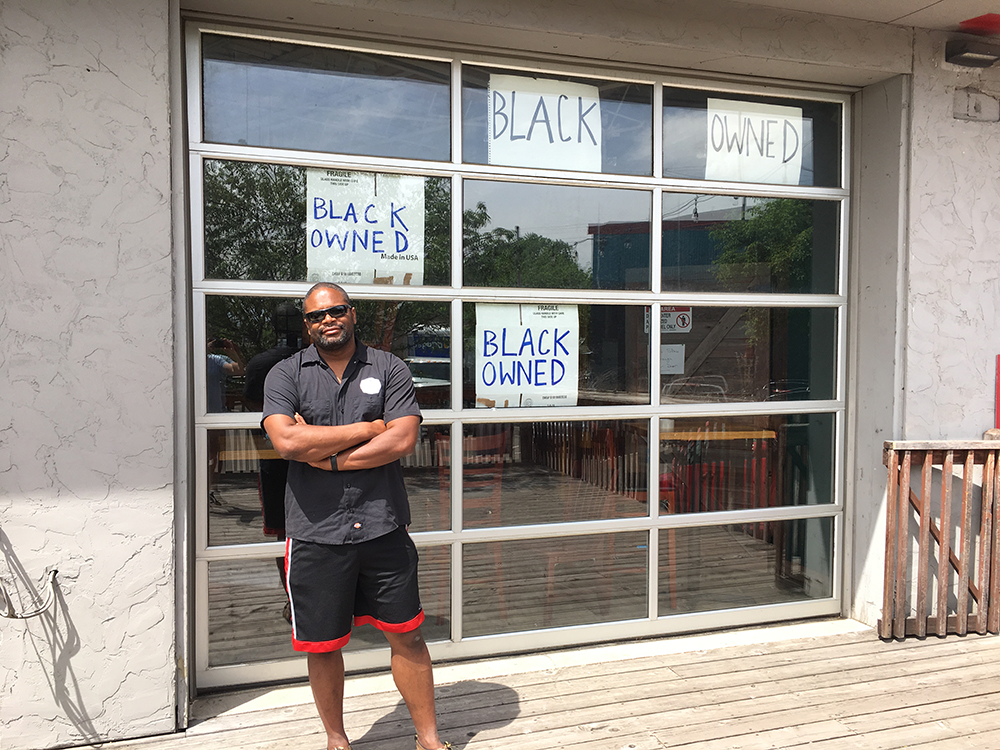
Editor’s Note: This column originally appeared in the July 2020 issue of CRAFT SPIRITS magazine.
When I started Du Nord Craft Spirits in 2013, I felt like I was on an island. There was only one other distillery in my state and none within 100 miles. Even as I was getting started, I felt that we were a junior distillery of sorts. We didn’t have the nice equipment; I had no staff; my fermenters were IBC totes with the tops cut off; I mixed mash with a canoe paddle; and, despite anything I could put in the bottle, most people seemed to fixate on the incredibility that a black guy owned a real distillery. I soon learned that many distilleries had challenges similar to mine, but every time my race was pointed out I felt like the island got a little smaller and farther out to sea.
If you grow up in a state like Minnesota and are a person of color, you get used to standing out in a crowd. To put it another way: You get accustomed to not fitting in. I suspect that is why we have always tried to make Du Nord a place where everyone felt like they could fit in—where everyone was wanted and supported.
These past few months have been hard on us all. COVID-19 and cocktail room closures ripped a good portion of revenue from us and distilleries across the country. Then George Floyd was murdered 2 miles from my distillery by four policemen whose precinct was at the end of my block. In that moment, the island got a little smaller, and I was reminded yet again that for all I might do in life, I would be black first. As a father, it deepened the sense of dread I have when I think of my little boys being taken from their world—where equality is assumed and the heaviest of their concerns is whether to watch “Tom and Jerry” or “Paw Patrol” with their coveted TV time—and thrown into a world where people like a George Floyd or a Chris Montana can be murdered by the police and it comes as no surprise. I remember when I was told about how the United States really worked. My biological father was 6 feet 6 inches tall, so there was little chance I would be anything but a large black man. I was told as a kid that I was always at risk because I would forever be viewed as a risk. Most people who will read this will not have been told those things and will not have to have that conversation with their kids. I don’t expect everyone to suddenly understand experiences that are wholly unavailable to them, but I do expect that we are all mature enough to engage in a conversation about why our system produces these results, how that system begins to explain why our industry lacks diversity in ownership and technical positions, and what we can all do to make things a little better.
I am saddened by George Floyd’s murder, the ensuing riots and the damage to our facility, but I am literally overjoyed at all the love I have received. My email inbox is overflowing, I have more texts than I could answer in a week, and I have had phone calls from all over the country and the world all expressing their support for me, my city and a vision of building a more equitable tomorrow. The distilling community has risen up and embraced me in a way I could not have imagined. I have shed many tears in the last few weeks and most of them are in response to the love I have felt from this community. I am truly humbled. The ACSA, led by the undeniable Margie A.S. Lehrman, and the haranguing of Paul Hletko, have raised funds to help us rebuild and given us the ability to raise funds for others not so fortunate to have a community like all of you. Perhaps best of all, a new energy has been put into long simmering efforts to enhance diversity in our industry on a micro and macro level.
The island is getting bigger and less lonely. The support I have felt tells me that many of you want to join me on that island. The issues our nation and our industry must face are not easily resolved, but I am hopeful that this time may be different because so many new voices are speaking up and reaching out. If I could ask anything more of this industry that has given me so much, it would be to keep the conversation going. Normal wasn’t all that great, so let’s not go back there. Keep talking and asking questions. You do not need to be a person of color to have a valuable voice when it comes to addressing systemic racism. I would argue that the thing we most need is not for persons of color to continue to ask for equality but rather for everyone else to realize we have not yet achieved it and have a duty to demand it.
I am writing this on Juneteenth, a celebration of the end of a nightmare and the hope of a better future. I want to thank the distilling community for helping me through a nightmare with all of your love and support; I look forward to working with all of you to realize a better future.


